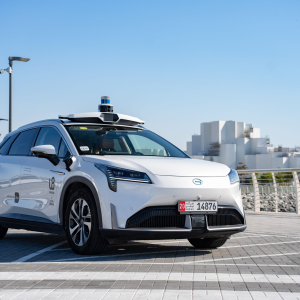Starting in 2025, a new tax is expected to be introduced for people traveling between Abu Dhabi and Dubai. This move comes as part of broader efforts by the UAE government to ease traffic, reduce pollution, and raise funds for infrastructure improvements.
Although many details are still being finalized, sources suggest that this toll-like tax will apply to private cars, ride-hailing vehicles, and possibly commercial vehicles using certain major roads that connect Abu Dhabi and Dubai. It will not affect public transportation such as intercity buses or trains.
Why this tax is being introduced
The route between Abu Dhabi and Dubai is one of the busiest in the UAE. Thousands of people drive daily between the two emirates for work, business, education, and leisure. With growing populations and more vehicles on the roads, traffic congestion and carbon emissions have become serious concerns.

Officials believe that by introducing a tax on inter-emirate road travel, people will be encouraged to carpool, use public transport more often, or reduce unnecessary trips. The money collected from this tax will likely go toward improving road networks, expanding public transport options, and funding sustainable mobility projects.
How the tax might work
While the final system has not been confirmed, there are talks that the tax will function similarly to toll gates already used in some parts of the UAE, like the Salik system in Dubai. Vehicles may be charged a small fee each time they pass certain points on the highway between Abu Dhabi and Dubai.


The charge could be automatic, deducted via vehicle tags or license plate recognition systems. Drivers would be billed monthly or could recharge their accounts online or through mobile apps.
There may also be different rates depending on the type of vehicle, the time of day, and how often the route is used. For example, rush hour charges may be slightly higher to discourage people from traveling during peak hours.
Who will be affected
This new tax will mostly affect people who regularly travel between the two cities by car. This includes:
- Commuters working in Dubai but living in Abu Dhabi (and vice versa)
- Private drivers and families making frequent trips
- Ride-hailing services such as Uber and Careem
- Business transport vehicles, if included in the final policy
Public transport users, including bus passengers, are not expected to pay this tax separately, as the cost would already be built into ticket prices. Carpooling options or van services may also benefit from lower fees, though details have not been confirmed.
What drivers are saying
News of the upcoming tax has received mixed reactions. Some residents say the tax is fair, especially if the money is used to make roads safer and traffic flow better. Others worry that it may increase their daily expenses, especially for those who need to travel between cities for work.
“I drive to Dubai every weekday for my job,” said Sara, a 32-year-old resident of Abu Dhabi. “Even a small daily tax adds up over time. I hope they offer some kind of discount for regular commuters.”
Mohammed, a 45-year-old logistics manager based in Dubai, said the tax might encourage companies to shift to remote work. “It might push firms to let staff work from home more often. Honestly, that could be a good thing.”

Some environmentalists have welcomed the idea, saying it will help reduce pollution if fewer people rely on cars. Others feel that more needs to be done to offer attractive public transport options before adding more costs to car users.
What the government is saying
So far, no official statement has been made confirming the exact fee, the launch date, or the full list of affected routes. However, government sources have confirmed that a new pricing system for inter-emirate road usage is under review and that public announcements will be made in the coming months.
Officials say the aim is not to make life harder for drivers but to create a balance between mobility, sustainability, and efficient road management. There may also be options for people to apply for exemptions or discounts, especially for low-income individuals or people with disabilities.
The government is expected to launch public awareness campaigns before the new tax goes live, explaining how it works and helping people register their vehicles or accounts.
Looking ahead
The UAE is not the first country to explore such road taxes. Similar systems exist in many parts of the world, including London, Singapore, and Stockholm, where drivers pay fees to enter or leave certain zones. These fees have helped reduce traffic and fund public transport improvements.
If successful, the Abu Dhabi to Dubai tax may inspire similar systems between other emirates, or even within certain high-traffic zones in cities.
For now, drivers and businesses are watching closely to see what the final plan will look like. Whether you’re a daily commuter or an occasional traveler, 2025 may bring a change to how you plan your trips between Abu Dhabi and Dubai.
So if you’re used to cruising along the highway between the two emirates without any charges, that may soon be a thing of the past.
Also read: Inside Saddam Hussein’s Shocking Life While Hiding in a Hole












